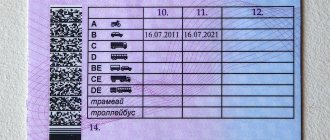- Visas
Types of visas by validity period - Types of visas by reason of receipt
- Grounds for obtaining a residence permit
- Requirements for obtaining permanent residence
- Grounds for obtaining citizenship
Visas
Italy is included in the list of countries in the Schengen zone, so Russians must obtain a visa to enter its territory. Documents for an Italian visa should be submitted at visa centers of Visa Management Service. This is the only officially accredited Italian visa center in Russia. The standard visa processing time is from 4 working days, in the high season it reaches 2 weeks.
You can also apply for a visa directly at the Consulate General of Italy in Moscow or at the Consulate General of Italy in St. Petersburg. Due to the significant number of applications, you will have to wait longer for an invitation to submit documents.
Types of visas by duration
- Visa A
A transit visa, which is obtained after crossing the Italian border once, but you cannot leave the international area of the airport. Its validity period is 48 hours. Citizens of some countries receive a visa; Russia is not one of them.
- Visa B
A transit visa that allows you to stay in Italy for up to 5 days. However, this visa was no longer issued after the entry into force of the EU Visa Code of 2010 and now a C visa must be issued instead for transit purposes.
- Visa C
A short-term visa for tourism or business, you can stay in Italy for no more than 90 days per six months. Visa C can be single-entry, double-entry and multiple-entry (multiple visa). A single-entry visa allows you to enter Italy once, a double-entry visa allows you to enter Italy twice. With a multiple visa you can cross the Schengen border an unlimited number of times.
- Visa D
A long-term visa that allows you to live in the country for more than 90 days per six months. This is a national visa for those who are going to Italy for a long time. You can use it to cross the borders of other Schengen countries. This type of visa can be extended.
Types of visas by reason of receipt
Tourist
This C visa is issued to those who intend to travel to Italy for tourism and recreation, treatment in a sanatorium, visiting relatives and friends, participating in conferences, cultural or sporting events. To receive it, you must submit a standard package of documents, including a bank account statement, ticket reservations, hotel reservations, an invitation or an agreement to purchase or lease real estate.
Business
This C visa is obtained for holding business meetings and negotiations with foreign business partners, concluding supply or cooperation agreements, and undergoing on-the-job training. Among the documents that must be provided are a certificate of inclusion in the Unified State Register of Legal Entities and an invitation from an Italian organization.
Sports
This C visa is issued to professional athletes to participate in international competitions.
Transport
Drivers apply for a C visa for the international transport of commercial goods on heavy vehicles, as well as the transport of people by bus.
Transit
This C visa is usually given to seafarers and cruise ship workers. You will also need it when transiting at the airport and to cross the Italian border when traveling to San Marino.
For a family reason
Such a visa can be type C or D. The basis for obtaining it is family reunification for permanent joint residence in Italy. You will need to provide documents confirming your relationship and an invitation from an EU citizen. The holder of an Italian residence permit can also invite relatives, but he will have to obtain permission (NULLa Osta) from the Unified Immigration Service at the Prefecture.
Selected place of residence
This is a national visa D, which is issued for permanent residence in Italy. It is requested by applicants who have high passive income, allowing them to live in another country. The visa does not give the right to work or conduct business in Italy.
The applicant must prove that he will be able to provide himself and his family with continuous income in the future from the sale or rental of real estate, interest on deposits, shares, bills, pensions, etc. Income from employment is excluded. You also need to purchase or rent real estate in Italy for a long time.
The minimum income level of the applicant is 31,000 euros per year. The amount increases by 20% if documents are also submitted by a spouse and by 5% for each dependent child. To obtain a visa, a foreigner must write a letter of motivation in English or Italian explaining the reason why he wants to live permanently in Italy.
Student
Pupils and students of commercial and public schools, colleges or institutes receive a C or D visa depending on the length of study.
Working
You can get a C or D visa for employment, entrepreneurial activity, starting a start-up or autonomous work. You will need to provide an invitation from an employer or a business project and confirm the availability of financial resources. You must also obtain an official permit (NULLa Osta) from the Unified Immigration Service of the Prefecture in Italy.
Medical
A visa is issued to patients if there are medical indications for undergoing treatment in a public or private clinic in Italy. This visa can be type C or D depending on the duration of therapy.
For religious reasons
Monks and clergy can obtain a C or D visa to participate in religious activities.
Volunteer activities
Depending on the duration of volunteering, a C or D visa is issued.
For re-entry
A D visa is issued in cases where the residence permit has expired, the residence permit has been lost or stolen, and also if the receipt has not been stamped at the border.
Property owners in Italy
The purchase of real estate in Italy, as in any country, is enshrined in law. However, purchases of residential and non-residential space by foreigners are regulated and controlled more carefully than transactions by the local population. Foreign citizens with the following status are allowed to purchase movable and immovable property in the state:
- Foreigners who do not have a residence permit. If you fall under this category, you first need to familiarize yourself with the legislation of your own country. In this case, it is important to have an international agreement with Italy, which must regulate the possibility of purchasing real estate in Italy by citizens of the country to which the potential buyer belongs.
Real estate in Italy
- Foreign nationals whose residence in the state is due to legal reasons (educational or student residence permit, family circumstances, residence permit for business, on an employment basis). When classified in this category, the existence of the agreement specified in paragraph 1 is not necessary.
Important: Despite the fact that the Italian Civil Code provides for the legality of civil rights of foreigners for a number of transactions (opening and operating a business, purchasing real estate), immigration legislation completely cuts off the possibility of obtaining a visa during the acquisition of real estate.
What does it mean?
When purchasing property, you do not automatically receive a residence permit; it is obtained separately.
Therefore, if you want to stay in the country permanently, first obtain a visa to Italy, and only then deal with the issue of purchasing property. Sometimes situations arise when the consulate refuses to issue a residence permit to a citizen.
Residence permit
A residence permit or permesso (Permesso di soggiorno) gives the right to legally reside in Italy for more than 90 days per six months. A residence permit is a plastic card with a chip containing the owner’s data.
First you need to obtain a national visa D from the Italian Consulate in your country. A residence permit can only be obtained in Italy. You must apply for a residence permit within 8 days after arriving in the country. Depending on the basis of the residence permit, you need to send documents by mail or directly contact the Italian police Questura, located at your place of residence. After submitting documents, passing biometrics and an interview at the Questura, you will have to wait about 60 days for the issuance of a residence permit.
Note. As a general rule, the basis for obtaining a residence permit is a D visa. This means that the residence permit must be requested for the same reason as the visa received. The types of residence permit and D visa are the same.
Real estate. Owning real estate in Italy is not a sufficient reason to obtain a residence permit. However, this is a serious advantage when applying for any type of residence permit or long-term D visa.
Real estate in Italy 4,163 ads on Tranio
680,000 € Stone three-storey villa with a pool and garden, Siena, Tuscany, Italy Total area 170 m² 5 bedrooms
790,000 € Spacious apartment with a parking, a terrace and views of the bay in a house with a garden and a swimming pool, Camogli, Italy Total area 120 m² 2 bedrooms
1,900,000 € Luxury villa with olive garden and sea views, Zoagli, Genoa, Italy Total area 240 m² Land area: 1,200 m²
Taxes. If you spend more than 183 days a year in Italy, you become a tax resident of the country. This means that you will have the same tax obligations as Italians, even if your income is received outside its territory.
Knowledge of the Italian language is not required to obtain or renew a residence permit. In order to extend the permesso and live legally in Italy, foreigners must receive at least 6,000 euros per year - the minimum amount of social benefits (assegno sociale). For each dependent family member - another 3,000 euros per year. You can monitor the status of your application for a residence permit on the Questura website.
Grounds for obtaining a residence permit
Investments
The investor and his family receive a residence permit in Italy for a significant contribution to the country's economy. Holders of an investment residence permit have the right to work or conduct business in Italy. An application for a residence permit is processed within 90-120 days.
Investment options
- 250 thousand euros - to Italian innovative startups
- 500 thousand euros - to the assets of Italian companies
- 2 million euros in Italian government bonds
- 1 million euros - a charitable contribution to socially significant projects in Italy
All investments are placed for a minimum of two years. The full amount of the investment must be invested within three months after entering Italy with an investor visa.
The residence permit is issued for 2 years and can be extended for another 3 years, subject to the preservation of the investment. Investors are not required to reside permanently in the country, but they must not leave Italy for more than 365 days. A residence permit by investment allows you to request permanent residence after 5 years. You can apply for citizenship on a general basis after living in the country for 10 years. Detailed information about obtaining an investor residence permit and submitting an online application can be found on the website of the Italian Ministry of Economic Development.
Selected place of residence (Residenza elettiva)
The chosen place of residence is obtained on the basis of the purchase of real estate or the conclusion of a long-term rental agreement and high passive income outside of Italy. A residence permit is issued without the right to work, do business or receive social benefits.
Such a residence permit is received by financially independent applicants who have a stable income of at least 31,000 euros per year from rental real estate, interest on deposits, securities, pensions, etc. Profit from employment is not taken into account. If the applicant also requests a residence permit for a spouse, then the minimum amount increases by 20%. For each child included in the application, another 5% is added.
Note. A residence permit based on the chosen place of residence does not give the right to obtain permanent residence. This residence permit is regularly renewed until citizenship is obtained.
Business immigration or self-employment (Lavoro autonomo)
Foreign businessmen who open their own business in Italy or are co-founders of an Italian company receive a residence permit for entrepreneurship. In order to engage in independent work, you need to obtain the right to professional activity in some field: commerce, trade, sports, art, etc.
To obtain this residence permit, you need to prove your financial solvency. Confirm your place of residence - rent or buy real estate in Italy. And also receive NULLa osta - official permission issued by the Questura.
Employment (Lavoro subordinato)
A residence permit for hired work is obtained by an employee who has entered into an employment contract with an employer in Italy. The applicant must obtain a quota, and the employer must have a permit to employ a foreign worker (NULLa Osta).
The Ministry of Labor and the Ministry of Economy of Italy set the number of quotas for seasonal work and hired work. The Decree on the distribution of work quotas (Decreto flussi immigratori) is published in January of each year. It specifies the maximum number of non-EU citizens who can come to work for hire in Italy.
For seasonal work, a residence permit is issued for a period of no more than 9 months. For work for a limited period (a tempo determinato), the duration of the residence permit is no more than a year. For work for an unlimited period (a tempo indeterminato), a residence permit is issued for a maximum of 2 years.
EU Blue Card (Carta Blu UE)
This is a residence permit for highly qualified specialists. Employees and managers of Italian companies and members of their families can apply for a blue card. The minimum salary before taxes must be 32,000 euros per year.
Carta Blu UE is a special immigration document that gives a foreign specialist the right to legally reside in the EU for a long time. Based on the received “blue card”, he is granted a residence permit in Italy. More detailed information about the program can be found on the Questura website.
Work for special categories of specialists (Lavoro casi particolari previsti)
Outside of quotas, special categories of specialists have the right to work in Italy. Among them are executives and highly qualified employees of companies, university teachers and professors, scientists, translators, officially accredited journalists, nurses, athletes, sailors, artists, dancers, painters and musicians.
Waiting for employment (Attesa occupazione)
A foreigner who has lost his job in Italy has the right to obtain a residence permit for the duration of his employment. He needs to register as unemployed at the municipal employment center, and then apply for a new residence permit at the Questura. A residence permit on this basis is valid for 1 year and cannot be renewed. If a foreigner has not found a job or opened a new business in Italy within a year, he is obliged to leave the country.
Study (Studio)
You can obtain a residence permit based on studying at school, college, university or Italian language courses if the duration of your studies exceeds three months. The residence permit is issued for a year, but it can be extended throughout the entire study period. A residence permit for study allows you to work in Italy for no more than 20 hours a week. A student residence permit is valid only for the duration of studying at the university, but then it can be transferred to a working residence permit and 5 years later - to permanent residence status. This type of residence permit is considered one of the easiest to obtain.
Family reunion (Recongiungimento famigliare)
Close relatives of an Italian citizen or a residence permit holder in the country have the right to obtain a residence permit on the basis of family reunification. Permesso is issued for a period of up to 2 years. To obtain a residence permit, you need to confirm the degree of relationship up to the 2nd degree - spouses, children, parents. A resident of Italy inviting relatives to the country must have his own or rented housing, suitable in size and a sufficient level of income to support his family. Relatives are first issued a D visa to enter Italy, and then a residence permit is issued. This residence permit allows you to work, conduct business and study at university in Italy.
Treatment (Cure Mediche)
Foreign patients can obtain a residence permit to undergo a long course of treatment in a public or private clinic in Italy. To do this, you will need to provide a certificate of illness, a contract with the clinic, a bank account statement, and also pay a deposit for treatment in the amount of 30% of the full cost.
Religion (Motivi Religiosi)
A residence permit is issued to foreigners who are in Italy for the purpose of preaching or missionary work.
Political asylum and humanitarian protection (Asilo politico, Motivi Umanitari)
Such a residence permit is obtained by refugees who are at risk of harm to health and life or personal persecution in their homeland.
Documents for obtaining a residence permit
- Application for a residence permit
- Original and copy of passport with entry visa
- 4 photos
- Documents confirming the basis for issuing a residence permit
- Receipt for payment of state duty
- certificate of good conduct
- Documents confirming place of residence - own or rented housing for a long period of time
- Postage stamp (Marca da bollo)
The main ways to obtain a residence permit in Italy in 2019
Obtaining a residence permit in Italy is possible in different ways:
- through official employment;
- when purchasing real estate;
- after registering your own business, etc.
Each option carries with it certain features.
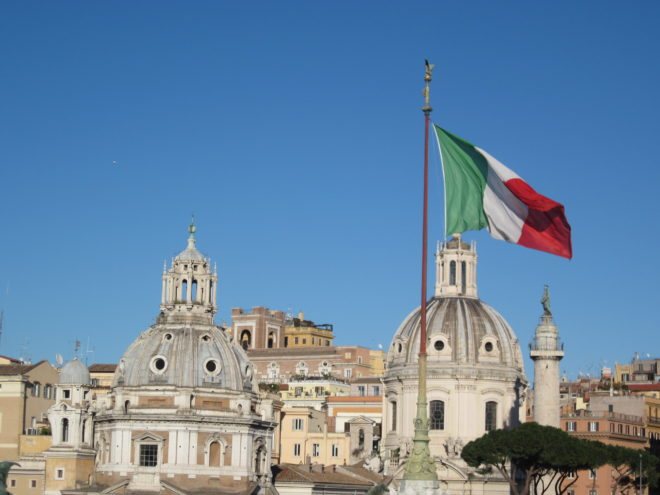
Employment
According to the current situation on the labor market in Italy, the migration service annually establishes a certain number of foreign citizens who reserve the right to obtain a residence permit. In this case, the number of quotas is established by labor force categories:
- seasonal workers;
- self-employed;
- other categories of employees.
The Italian government is interested in the employment of foreign citizens with a high level of training. For example, engineers with at least 5 years of work experience can obtain a residence permit under a simplified scheme.
The validity period of a residence permit is set individually and can vary from 6 to 24 months. A prerequisite is an invitation from a local employer.
The employer undertakes the responsibility:
- Confirm the availability of a place of residence for the worker.
- Prepare a draft employment contract.
- Provide guarantees for the calculation of wages, which cannot be less than 8.4 thousand euros per year.
- Transfer the required tax fees for the employee and pay for his travel to his place of work.
Quotas are not established exclusively for recipients of the EU Blue Card, which is reserved for highly qualified employees. In this case, the salary requirements are set at 25 thousand euros per year.
Business
Carrying out independent work activity entails the issuance of a residence permit for up to 2 years. Applies to those who provide themselves with work:
- founders of organizations;
- individual entrepreneurs.
The migration program is considered the least difficult option for obtaining a residence permit in Italy, and subsequently permanent residence. The disadvantage is the presence of annual quotas. To take advantage of your chance, you must submit documents at the beginning of the calendar year.
Education
The Italian Migration Service willingly provides residence permits to students who have been enrolled in one of the Italian universities. The document can be renewed annually. In addition, a study residence permit does not give the right to formulate an application in the future for the purpose of obtaining permanent residence and subsequent citizenship.
Students who find a job during their studies can try their luck and adjust the assignment of their residence permit for the purpose of official employment or self-employment. However, there are quotas, which means there is a high level of demand, making the likelihood of approval low. For example, in 2021, only 500 quotas were allocated.
The provided quotas are unevenly distributed across all regions. For example, the largest amount is allocated for Rome and Milan.
Marriage or family reunion
Close relatives of persons who legally reside in Italy can obtain a residence permit. These include:
- spouses;
- dependent minor children;
- adult children.
A residence permit for the purpose of family reunification can be obtained:
- for accompanying family members. Documents are submitted by the head of the family for a category D visa, immediately before passing through customs control;
- for family reunification followed by obtaining a permit. This option is optimal if the spouse has already received a residence permit, and his income level is sufficient to support all family members;
- for the purpose of family reunification on site. It is relevant if the spouse has a residence permit and a sufficient level of income, and his family members entered the country on an issued tourist visa.
In case of official divorce, the residence permit cannot be extended. In this case, it becomes necessary to reissue the document, for example, for official employment or education.
Chosen place of residence
Many people mistakenly believe that the migration program implies a requirement to purchase real estate in Italy. However, it is not. A residence permit is not provided for the purchase of real estate, but this is considered a valid reason in addition to the main reasons for migration.
The developed program is intended exclusively for financially secure foreign citizens, since the main criterion is the presence of an open account in an Italian bank. It must have at least 50 thousand euros and additional capital for living. Potential applicants must provide documentary evidence of their existing income in the amount of 17.8 thousand euros per year.
The residence permit under the program does not provide for the possibility of legal official employment.
Political refuge
Italy is one of the countries that have signed the Refugee Treaty, which is why it is ready to grant such status to foreign citizens. To do this, it is necessary to prove the fact of persecution for religious, political, racial and social reasons.
The submitted application is subject to consideration by a specially formed commission, which is located in Milan, Rome, Trapani, Siracusa.
permanent residence
Permanent residence permit (permesso di soggiorno UE per soggiornanti di lungo periodo) is obtained after five years of legal residence in Italy under a residence permit. At the same time, absence from the country is allowed for no more than 6 months in a row and no more than 10 months in total over a five-year period.
Requirements for obtaining permanent residence
- Live in Italy and have a residence permit for five years
- Prove that you have received an income sufficient to support yourself and your family
- Confirm the availability of housing that meets all necessary standards
- Pass the Italian language proficiency exam at level A2
Permanent residence is essentially an indefinite residence permit in Italy. A permanent residence permit gives a foreigner the same rights as Italian citizens, except for voting. You will be able to live and work in the country, receive education and medical care. More detailed information about obtaining permanent residence can be found on the Questura website.
Important. Permanent residence may be revoked if the foreigner has been absent from the European Union for 12 consecutive months or has not entered Italy for 6 years.
Documents for obtaining permanent residence
- Application for permanent residence to the Questura
- Original and copy of all pages of the passport
- A copy of the current residence permit (Copia permesso di soggiorno)
- Copy of the tax code (Copia codice fiscale)
- Certificates of good conduct from the Prosecutor's Office (Certificato casellario giudiziale and Certificato delle iscrizioni relative ai procedimenti penali)
- Certificate of suitability of housing and compliance with sanitary and hygienic requirements (Il certificato di idoneità dell'alloggio, Ufficio Tecnico)
- Certificate of family composition from the Commune (Certificato stato di famiglia)
- Certificate of registration for 5 years from the Commune (Certificato di Residenza Storico)
- Certificate of passing the Italian language exam at least level A2 (Certificazione della lingua)
- Tax return for the last year (Dichiarazione dei redditi)
- Statement of the account balance at the time of submitting the request (Copia del bilancino provvisorio d'attività). The amount must not be lower than state social assistance (Importo annuo dell'assegno sociale) - 6,000 euros in 2021 for the main applicant + 50% for each dependent family member.
- A copy of documents confirming your salary for the previous year (CUD, Modello Unico or buste paga).
- Certificate of good conduct in Russia
- Lease contract or title deed in the name of the applicant or his spouse
All documents received in Russia must be certified and translated into Italian.
Reasons for refusal to issue and extend a residence permit
A residence permit may be refused under the following circumstances:
- not all documents have been provided;
- a criminal case has been opened against the applicant;
- there is no confirmation of the applicant’s source of income;
- the applicant does not have a place to live in Italy;
- the advisability of a long stay in the country has not been proven.
If you have already received a residence permit, be careful not to renew it after it expires. If you don’t make it in time, you may face a refusal to renew. To avoid delays, you must submit an application for extension 90 days before the expiration of the residence permit. This is done at the questura (police department).
A residence permit may even be revoked if the following violations are revealed:
- the document was prepared using falsified documents;
- the residence permit holder committed a crime in Italy;
- the owner of the residence permit no longer meets the conditions for providing the document;
- the applicant has been absent from the EU for 12 consecutive months;
- the applicant was absent from Italian territory for more than six consecutive years;
- the applicant has acquired resident status in another EU country.
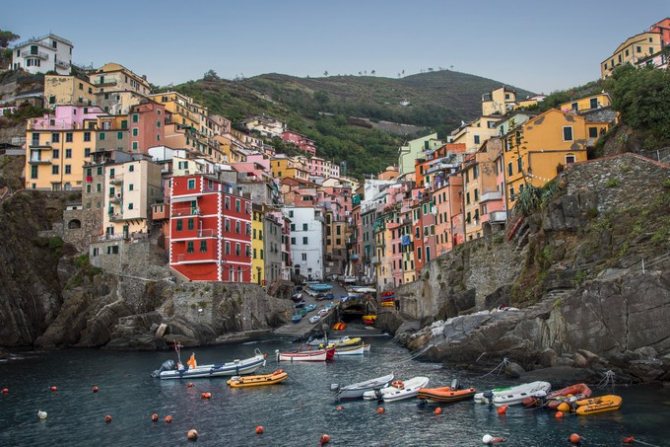
Citizenship
A foreigner has the right to obtain Italian citizenship after living in the country for more than 10 years. To do this, he must confirm knowledge of the Italian language at level B1, income for the last three years, availability of housing and no criminal record. The minimum annual income for one applicant is 8,300 euros, with an additional 500 euros for each dependent.
Italy recognizes dual citizenship. This means that you will not have to give up your Russian passport. Italian citizenship gives you the right to live and work in any EU country, visit 188 countries without a visa, and also participate in the electoral process.
Since 2015, citizenship requests have been submitted online. To do this, you must register on the website of the Italian Ministry of Internal Affairs. The processing time for Italian citizenship usually takes from 24 to 48 months.
Full information about the reasons for obtaining Italian citizenship and the necessary documents can be found on the website of the Italian Ministry of Foreign Affairs.
Grounds for obtaining citizenship
Blood relations
“Right of blood” (Latin: “ius sanguinis”) is a key principle of obtaining Italian citizenship. This means that if one of the parents is an Italian citizen, then the child receives citizenship automatically, regardless of place of birth.
Birth in the country
"Right of soil" (Latin: "ius soli") applies in Italy only in certain cases. Citizenship is granted by birth on Italian soil to children whose parents are unknown or stateless.
Marriage
If you are married to an Italian citizen, you can apply for Italian citizenship after 2 years of living in the country. If a married couple lives abroad, then they can apply for citizenship 3 years after the wedding. If children were born in the marriage, the terms are halved: 1 year and 1.5 years, respectively.
Adoption
A foreign child adopted by an Italian parent also receives Italian citizenship.
Accommodation
Citizenship based on permanent residence (residenza anagrafica) in Italy is obtained in several cases:
- Non-EU citizen who has been legally resident in Italy for at least 10 years (provided there is no criminal record and a source of income)
- A foreign citizen who was born in Italy and has lived there for at least 3 years
- Foreign citizen, son or grandson of former Italian citizens by birth, who has resided in the country for at least 3 years
- A foreign adult citizen who is adopted by Italian parents and then lives in Italy for at least 5 years
- Foreigner working in Italian public institutions (in Italy or abroad) for at least 5 years
- EU citizen who has lived legally in Italy for at least 4 years
- Refugee or stateless person who has been legally residing in Italy for at least 5 years
Documents for obtaining citizenship
- Application for Italian citizenship
- Original and copy of birth certificate
- Russian passport
- A copy of all pages of a valid passport
- Original and copy of a valid residence permit (Titolo di soggiorno)
- Certificate of no criminal record in your country
- Summary certificate of no criminal record from an Italian tribunal (Certificato generale del casellario giudiziale italiano)
- Certificate of absence of criminal prosecution and outstanding conviction (Certificato dei carichi pendenti)
- Income declarations for the last 3 years (Modello CU, Unico or Modello 730)
- Certificate of residence, which indicates all addresses of registration from the moment of entry into Italy (Certificato storico di residenza)
- Certificate of family composition (Stato di famiglia)
- Certificate of passing the Italian language exam at level B1 (Certificazione della lingua)
- Postage stamp (Marca da bollo)
- A copy of the receipt for payment of the state fee of 250 euros
All documents received in Russia must be certified with an apostille and translated into Italian. If the decision of the authorities to grant Italian citizenship is positive, the foreigner must take the oath within 6 months at the municipality of his place of residence.
How to decide on a visa category?
However, do not be discouraged, immigration to Italy is quite real, and if you have already purchased real estate in a sunny country, you can carry it out in the shortest possible time. The next block will tell you about ways to obtain the treasured document.
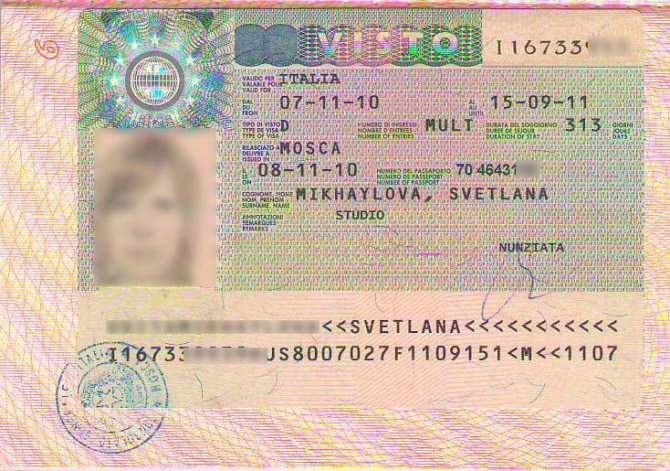
- Temporary visa. This means not only obtaining a temporary residence permit on the territory of the state, but also issuing an identity card, as well as an insurance card, the possession of which gives a number of rights, including medical ones. A temporary residence permit is obtained in the following cases:
- Registration for permanent or temporary work under a rental agreement.
- Long business trips.
- Internships with a professional focus.
- Completing training (including student internship).
- Adoptions.
- Creating a family.
- Submitting documents for political asylum or for religious reasons.
The length of stay in the Italian state for these reasons is regulated by the characteristics of each of them:
- Established by the rental agreement. As a rule, a period of 2 years is set, but if an extension is necessary, the employer deals with this issue independently. If the work is seasonal, the duration of stay is from 6 to 9 months.
- It is determined by the need to stay in the country and is negotiated during the trip. If there is a need for an extension, a foreign citizen applies for permission from the migration service or the consulate of his country.
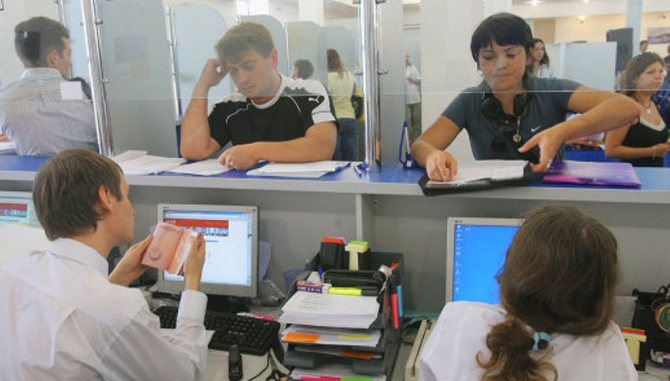
- In the case of professional internship, it is regulated for 1 year. Extension of stay is possible for multi-year internships.
- The duration of training varies depending on the chosen internship (training) program.
- A lifetime right of residence is issued.
- Duration of stay is up to 2 years. If the marriage procedure has been completed, the period can be increased to lifelong stay.
- It is regulated individually in each specific case.
- Opening of a representative office in Italy. For Russian enterprises, immigration legislation provides for the possibility of obtaining a residence permit in Italy through opening a representative office of their organization. This case belongs to one of the subcategories of employment and is suitable for management or highly qualified specialists.
Duration of stay is up to 5 years. If you receive a temporary visa through this channel after 5 years, you will need to leave the country for 3 months, this is also enshrined in law.
The main disadvantage of this choice is the strict connection to the organization through which entry into the territory of the state was allowed.
- Registration of the chosen place of residence. This category is only suitable for citizens with VIP status, because... provides for residence in Italy without obtaining the right to work, social or health insurance. If you choose this type, you must have passive income and housing in the country (or a rental agreement for residential space). The length of stay is not limited.

If you choose any of these types, you can apply for a residence permit. When submitting a package, they will not look at the availability of your own housing; it will be enough to provide a rental agreement.
Popular questions about residence permit in Italy
How to obtain Italian citizenship by marriage?
The spouse of an Italian citizen has the right to apply for Italian citizenship if the spouses have lived legally married in the country for two years.
If you live in another country, the period increases to three years. The presence of children in the family, including adopted children, reduces the period by half.
After how many years of official residence in Italy can I apply for citizenship?
In Italy, the deadline for filing an application directly depends on the country of the foreign citizen:
- For non-EU countries - at least 10 years;
- For foreigners from the countries of the European Union - 4 years;
- Stateless persons and political asylum seekers - 5 years;
- Adopted adults - 5 years from the date of adoption.
When is a foreigner denied a residence permit?
- A citizen poses a direct danger to public order, including at the state level;
- Judicial proceedings have been opened against the foreigner, the proceedings of which have not yet been completed;
- Charged with one of the crimes specified in paragraphs 1 and 2 of the Uniform Immigration Act (drug trafficking, prostitution, employment of minors).
- Accusation of copyright infringement (with final verdict).
- no proof of source of income
- the applicant does not have a place to live in Italy (purchased or rented property)
- the advisability of a long stay in the country has not been proven
Documents for obtaining a residence permit
- Application for a residence permit
- Original and copy of passport with entry visa
- 4 photos
- Documents confirming the basis for issuing a residence permit
- Receipt for payment of state duty
- certificate of good conduct
- Documents confirming place of residence - own or rented housing for a long period of time
- Postage stamp (Marca da bollo)
Cost of obtaining a residence permit in Italy
In 2021, the following prices for obtaining a residence permit are established in Italy:
- 40 euros for documents valid up to 1 year;
- 50 euros - from 1 year to 2 years;
- 100 euros - for residents planning to stay in Italy on a long-term basis.
Additional costs when applying for a residence permit include (payment is required):
- 30.46 euros for issuing a copy of the residence permit on electronic media;
- 30 euros for postal services;
- 16 euros - stamp duty.
Ani Muradyan All articles by this author
Residence permit in Italy
Main types of residence permit
If you plan to stay on Italian territory for more than 90 days, you need to request a residence permit in accordance with the visa received. Only in this case will immigration to Italy be considered legal.
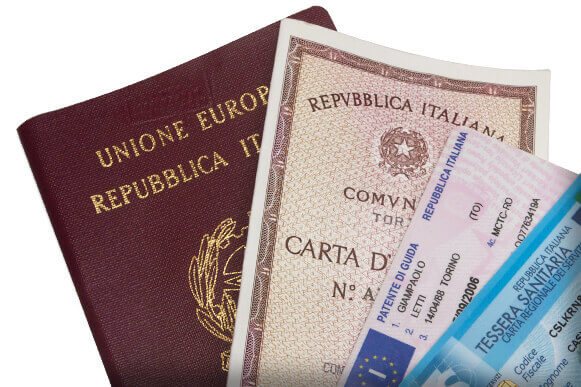
There are various types of residence permits, which are divided according to the grounds, duration of stay and possibilities:
- seasonal work;
- studies;
- chosen place of residence;
- treatment;
- employment;
- family reunification;
- entrepreneurship. In this case, it is possible to issue a residence permit for up to two years with each renewal.
The grounds for initially obtaining or extending a residence permit are different. These may be issues related to the adoption process, when the child’s place of residence is determined, and the issue of employment is expected to be resolved. In addition, such issues include running a business, seasonal work related to the hiring procedure, scientific research, issues related to the educational process or internship in one’s profession. This also applies to citizens awaiting Italian citizenship.
Duration of residence permit
A residence permit can be issued for a period not exceeding the validity period of the visa:
- Up to six months for seasonal work;
- Up to a year to study;
- From one to two years for work of a subordinate nature, individual labor activity and for family reasons;
- Three years residence permit for investors.
Renewal of residence permit in Italy
In order to extend or obtain a residence permit, knowledge of the Italian language is absolutely not necessary. Testing, which determines the level of knowledge, is carried out only during the registration process, which does not have a deadline (permanent residence in Italy). However, it is requested no earlier than after five years from the start of residence in Italy.
As a rule, renewing or obtaining an Italian residence permit takes 60 days, but there are often cases when it takes 6-8 months to obtain it. At this stage, it is necessary to have a reliable partner to speed up the issuance of the document. This could be an immigration lawyer, or a company that you work with for post-immigration services. At the moment, only our company provides legal services to expedite the issuance of a residence permit in Italy.
In general, the legislation provides that a foreigner, at the time of submitting a request to extend a residence permit, is in a situation that meets all the requirements for foreigners receiving a first residence permit in Italy. The most important conditions for extending a residence permit are the possession of sufficient financial resources and the absence of a criminal record.
When to apply for a residence permit extension?
A request to renew a residence permit must be submitted:
- 60 days before the expiration of the residence permit (PdS), if it was issued for 1 year;
- 30 days before expiration (PdS), if it was issued for a period not exceeding 1 year.
A request to extend a residence permit can be submitted even after its expiration, if you are able to prove to the authorities the seriousness of the reasons why you could not do this within the time limits established by law. Thus, Article 13 of the “Uniform Immigration Law” allows you to submit a request to extend a residence permit within 60 days from the date of expiration of the residence permit, depending on the severity of the situation.
Income requirements for a foreign worker to extend a residence permit
Currently, in Italy there are recommendations for questura employees that prohibit assessing the sufficiency of an employee’s financial resources automatically by comparing them with the amount of annual social payments, “assegno sociale”.

In 2021, in order to extend the permesso and officially live in Italy, foreigners must (officially) receive at least 5.977.79 € per year (the established amount of social benefits).
However, when considering an application for extension of a residence permit, the questura is also obliged to assess the immigrant’s situation and the prospects for his future employment.
Income from illegal work
In case of insufficient legal income, the immigrant may risk attaching a statement of income from illegal labor activities to the request for renewal of the residence permit.
In this case, however, the deadline for extending the residence permit is delayed, because The Questura contacts the competent authorities (INPS, INAIL, etc.) to assess the situation.
Family income
When considering whether to extend a residence permit, the income of all family members is taken into account.
Occupational disease or injury
The Questura cannot refuse to renew a residence permit due to lack of work to an immigrant who worked in Italy and who, as a result of work, has acquired a chronic serious illness or injury that prevents the foreigner from being reinstated in his position, in accordance with Article 8 of OIL Convention No. 97.
Obstacles to extending a residence permit
When renewing a residence permit for a Russian citizen in Italy, the Questura will consider the existence of any obstacles to the subsequent issuance of the document. First of all, factors such as the presence or absence of a criminal record, the current marital status of the foreigner, the length of stay in Italy, the presence of family members also living in Italy, and much more are taken into account.
An immigrant will be denied a residence permit extension if:
- the foreigner poses a danger to public order and state security;
- the alien has committed, even if the trial is not completed, one of the crimes described in Article 380, paragraphs 1 and 2 of the Uniform Immigration Act (drug trafficking, violence, promoting illegal immigration, prostitution, exploitation of minors).
- a foreigner is convicted (by final verdict) of violating copyright rules.

According to Article 178 of the Italian Criminal Code, the rehabilitation procedure is possible after at least three years have passed from the date of completion of the sentence for the crime. The term increases to eight years if the foreigner has been convicted of an aggravated crime and to ten years if the accused has been declared a habitual criminal (delinquente abituale).
List of documents required to apply for an extension of a residence permit for employment
In addition to forms 1, 2 Model 209 (Modulo 1 e 2 del Modello 209), the following must be included in the ELI 2 envelope:
- A photocopy of passport pages indicating personal data, marks, visas;
- A photocopy of the expiring residence permit;
- Photocopy of the declaration of hospitality or rental agreement (fotocopia della dichiarazione di ospitalit?, contratto di affitto relativi all'alloggio di domicilio);
- Photocopy of the Unificato Lav form or the Modello Q form (for domestic workers);
- A photocopy of documents certifying the existence of income from work activity or from another legal source (income declaration Cud, Unico, etc.): the latest tax return or salary receipts for the period of employment.
- For domestic workers: in addition to the above documentation, photocopies of payment of pension contributions to INPS
Inclusion of children under 14 years of age into the residence permit
Children under 14 years of age may also be included in the residence permit for hired work; in this case, the following documents must be provided:
- A photocopy of the passport pages indicating the child’s personal data, stamps, visas (if the child has his own passport);
- If the child has not yet been included in the parents' residence permit, a certificate of maternity/paternity, translated and legalized, if obtained in another state;
- School attendance certificate if the child is attending an educational institution.

List of documents required to apply for extension of residence permit for family reasons
In addition to forms 1, 2 Model 209 (Modulo 1 e 2 del Modello 209), the following must be included in the ELI 2 envelope:
- A photocopy of passport pages indicating personal data, marks, visas;
- A photocopy of the expiring residence permit;
- A photocopy of the relative’s passport (page with personal data);
- A photocopy of the relative’s residence permit;
- A declaration in which the relative who invited the foreigner certifies the fact of accepting the foreigner as a dependent;
- TIN (Codice fiscale).
When renewing a residence permit for family reasons, the authorities consider the sufficiency of the family's financial resources, but the total household income is taken into account when calculating the profit.
The cost of obtaining a residence permit, the cost of postal services
Read more about the cost of obtaining a residence permit.
In some cases, a residence permit can be requested directly from the police department; read more about this here.
Obtaining a residence permit in Italy when purchasing real estate
The opinion that a residence permit in the Italian state is given automatically in case of purchasing a property is erroneous. Such real estate makes it possible to count only on obtaining a C visa with the right to visit the Italian state, but no more than for a period equal to 3 months out of six months. This right should not be confused with a residence permit.
See more details in the article buying real estate in Italy and residence permit
Traveling within the EU and beyond while waiting for the issuance or renewal of a residence permit
Citizens of foreign countries who are awaiting resolution of an issue related to the extension of a residence permit have the right to leave the country if they have a receipt from the post office, which confirms the fact of the extension request, and in the presence of a foreign passport.
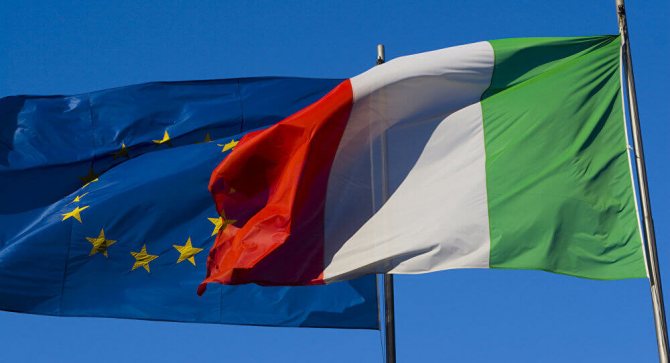
Integration Agreement
In the spring of 2012, an agreement was adopted according to which foreign citizens from countries that are not members of the European Union, applying for a residence permit for the first time, must sign an “Integration Agreement”. It is between the state and the immigrant. The agreement is concluded with all citizens of foreign countries who are 16 years of age or older and who are applying for a residence permit in Italy for the first time. During a citizen’s stay in Italy, he is awarded a certain number of points, which depend on various components (professional training, having his own enterprise, knowledge of the language, attending a special course, behavioral aspect, the fact of the required level of education, doing business, purchasing living space and even having doctor assigned to the family).
By signing this agreement, a citizen entering the country undertakes to master the state language at the initial level, study the Constitutional foundations, principles of government, the medical care system, the educational process and public life.
30 days before the end of this agreement, the total number of bonuses is calculated. If the score is 30 points or more, both parties consider the agreement to be fulfilled. If a citizen scores up to 30 points, then it is extended for another two years. If the score is negative, the foreign citizen is expelled from the country.
This agreement contains a clause stating that deportation measures and the procedure related to the refusal to issue a residence permit in the case of a negative number of points cannot be applied to citizens of foreign countries who have a residence permit related to the issue of unifying family members, grounds of a humanitarian nature, with a long-term residence permit, to refugees and family members of citizens of the European Union.
Prices for obtaining a residence permit can be found directly in our company.
You can check the readiness of your residence permit on this website.
